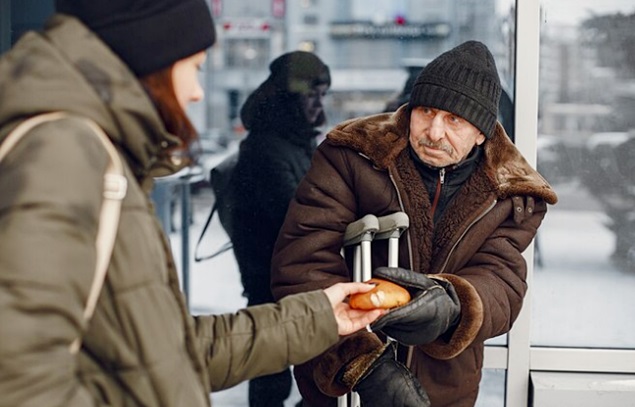1910

After the index measuring social progress steadily advanced over more than ten years, the level of quality of life and social welfare stagnated globally in 2023, according to the latest edition of the Social Progress Index, which analyzes these dimensions in 170 countries and is conducted by the non-profit organization Social Progress Imperative with the support of Deloitte.
Over time, the global social progress index has risen from 58.34 in 2011, when the study was first conducted, to 63.44 at the end of 2023, a level almost unchanged compared to the index of 63.75 in 2022, as most countries stagnated or even declined last year, the study shows.
Romania has also followed this trend and has increased from 71.52 in 2011 to 75.24 in 2023, a level which is however slightly lower than the previous year when it was 76.89. Our country thus ranks 44th out of the 170 states analyzed and remains among the countries in the second category, after Argentina, Barbados, and Bulgaria. The study includes six categories of countries, and Romania moved up to the second category in 2022.
The Social Progress Index (SPI) measures the quality of life and social welfare of citizens in 170 countries, based on the analysis of three main dimensions.
The methodology involves assigning a score for elements falling into the category of basic needs - namely food and basic medical care, water and sanitation, housing and personal safety - for those related to well-being - access to basic education, access to information and communication, health and well-being, environmental quality - and for elements related to opportunities - personal rights, personal freedom and choice, inclusion, access to advanced education. Based on the score awarded, the countries in the ranking are grouped into six categories, in descending order.
"This edition of the report unfortunately confirms the predictions of the previous edition and shows that the index measuring global social progress did not increase in 2023, which is a first since this analysis has been conducted.
In the context of challenges generated by economic instability, geopolitical tensions, and climate change, more than three-quarters of the countries analyzed - that is, four out of five people in the world - have stagnated or even declined from the point of view of social progress, due to the decline recorded in two of the dimensions analyzed globally, namely access to advanced education and environmental quality.
It is important to consider that this analysis focuses on non-economic aspects, so although the global GDP per capita has increased, the world's countries still fail to transfer this economic development into concrete benefits for the daily lives of all citizens.
Moreover, Deloitte studies explain that investments, economic growth, and social progress are interdependent and create a virtuous circle only if accompanied by additional measures, such as facilitating and strategically directing the flow of investments towards certain industries and regions.
Our country followed the same trend - we have one of the fastest GDP per capita growth rates in the EU in the last decade, but the development disparities between urban and rural areas are felt, as well as the differences between regions," said Alexandru Reff, Country Managing Partner, Deloitte Romania and Moldova.
In 2023, Romania ranked 46th in the world in the basic needs category, 49th in terms of well-being, and 46th in the opportunities category. Analyzing the values assigned to each coordinate that falls into these three categories, our country obtained the best results in nutrition and medical care (28th place), housing (43rd place), personal safety (45th place), and information and communication (46th place).
On the other hand, the coordinates that record lower scores include social inclusion (71st place) and water and sanitation (67th place).
Denmark ranks first in the world, with a score of 90.38
• In 2023, Denmark, Norway, and Finland occupy the top positions in the ranking, while Chad, the Central African Republic, and South Sudan are at the bottom.
• All EU member states are in the top two categories, with Denmark, Norway, and Finland occupying the highest positions.
• Only three G7 countries - Germany (10), Canada (15), and Japan (16) - ranked in the first category of the ranking.
• Among the countries in Central and Eastern Europe, the best position is held by Estonia (18), followed by the Czech Republic (19), Slovenia (20), Lithuania (31), Latvia (32), Croatia (33), Slovakia (35), Poland (36), Hungary (40), Bulgaria (43), and Romania (44).
Evolution of the index between 2011 and 2023
• Since 2011, the world has recorded a steady advance in the social progress index, but in 2023, for the first time, the level of quality of life and social welfare decreased to 63.44, from 63.75 in 2022.
• Since 2011, four countries have experienced a decline in the level of social progress, namely Venezuela (-6.18), Syria (-4.22), the USA (-1.40), and the United Kingdom (-0.39).
• In the last 12 years, 11 out of the 12 components that make up the global score have increased, with the largest advance being recorded in information and communications (+19.55), housing (+8.70), and water and sanitation (+7.71).
• On the other hand, from 2011 to the present, the score has decreased in the categories of rights and freedom of expression (-6.49).
The global results of the Social Progress Index 2024 are available here, along with detailed results for Romania. (Photo: Freepik)





